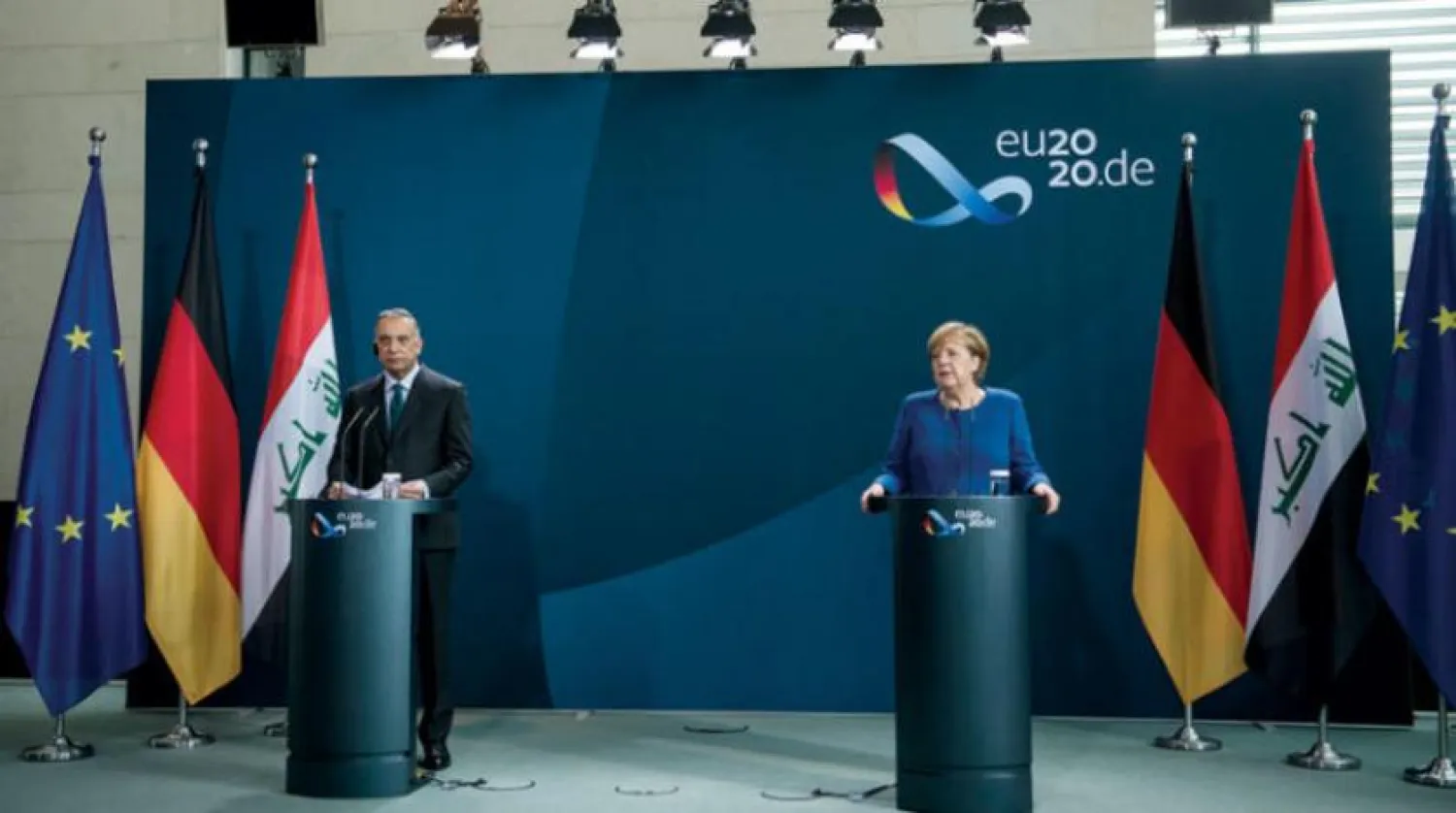Iraqi Prime Minister Mustafa Al-Kadhimi on Tuesday found great support in Berlin, the second leg of his visit to Europe. He had arrived in the German capital from Paris and will leave it to head to London.
German Chancellor Angela Merkel met with Kadhimi and pledged to continue to support Baghdad in its journey towards stability, security, and economic growth.
During a joint press statement with Kadhimi, Merkel welcomed his government's "will to reform."
She stressed the need for continued international support for preserving Iraq’s security and to face the challenges of an ISIS reemergence.
“ISIS remains a threat to the region and of course beyond," Merkel said, emphasizing that Germany would continue to support Iraq both within the framework of the anti-ISIS coalition and a NATO mission training Iraqi security forces.
Merkel also pledged to help Iraq during the coronavirus pandemic, offering to provide protective equipment and ventilators as well help training medical personnel.
She also said that Kadhimi's government was pursuing a "very ambitious agenda" on issues such as fighting corruption, the rule of law, and strengthening state institutions.
That "ambitious agenda" included the announcement of early elections for June 2021. "Through these measures, the Iraqi people's confidence in state institutions can be strengthened," she said.
For his part, Kadhimi said that Iraq looks forward to holding a true partnership with Germany. He also added that his visit to Berlin comes to reaffirm Iraq’s commitment to establishing close ties with Germany.
He added that his government was striving for increased cooperation with Germany in areas such as refugee policy and economic policy, particularly in the energy sector.
The prime minister confessed that Iraq is passing through hard times because of the coronavirus, but stressed that there is an ambitious program in action to restructure and build the Iraqi economy.









